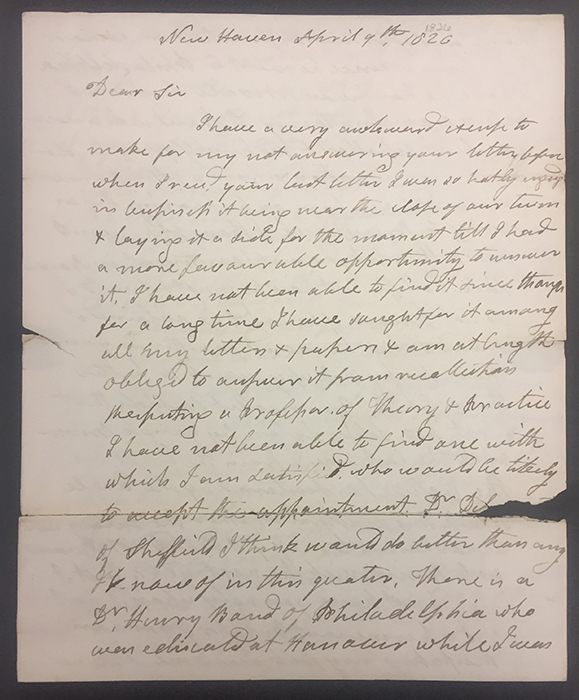Nathan Smith to Parker Cleaveland, April 9, 1826, correspondence. Parker Cleaveland Collection.
Nathan Smith (1762-1829), a skilled surgeon, teacher, writer, and practitioner, was instrumental in the founding of Dartmouth Medical School (1797), the Yale School of Medicine (1810), and the University of Vermont College of Medicine (1822). He also served as the first faculty member at the Medical School of Maine.
Smith was born in Rehoboth, Massachusetts. After serving as an apprentice to doctors in Vermont, he began practicing medicine in Cornish, New Hampshire, then pursued studies at Harvard from 1789 to 1790 and in Europe from 1796 to 1797. Back in Cornish with a flourishing practice, he persuaded nearby Dartmouth College to teach medicine and, in 1798, he became the medical school’s first professor. He was one of the most advanced American physicians of his day both in his surgical techniques and in emphasizing close observation instead of traditional theory.
In 1820, Bowdoin College President William Allen, who served from 1820 to 1839, contacted Nathan Smith about serving as the inaugural lecturer on medicine. Responding to Allen’s inquiry of setting up a Medical School the like Dartmouth’s, Smith replied, “I think after what experience I have had, we could form a medical school that would, in point of real utility, equal any in the country. In a new state like Maine, where neither habit nor parties have laid their ruthless hands on the public institutions, and where the minds of men are free from their poisoning influence, everything is to be hoped for.”
While Nathan Smith resigned his teaching duties with the Maine Medical School in 1825, he remained deeply invested in its success. In this 1826 letter, he advises Parker Cleaveland about potential faculty hires for the Medical School, as well as the necessary finances to retain them.
